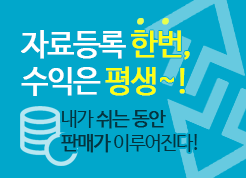[인문사회] 19세기 영.미시
 등록일 / 수정일
등록일 / 수정일 페이지 / 형식
페이지 / 형식 자료평가
자료평가 구매가격
구매가격
- 2008.03.10 / 2019.12.24
- 114페이지 /
 hwp (아래아한글97)
hwp (아래아한글97) - 평가한 분이 없습니다. (구매금액의 3%지급)
- 2,500원
최대 20페이지까지 미리보기 서비스를 제공합니다.
자료평가하면 구매금액의 3%지급!
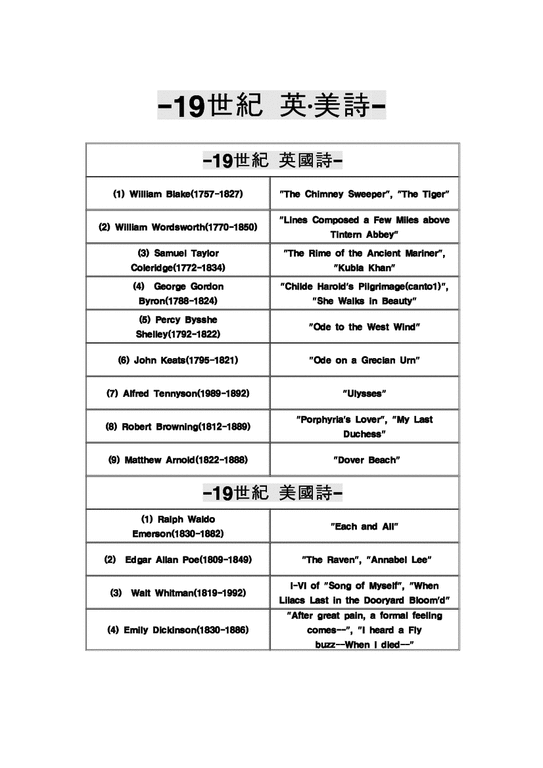 1
1 2
2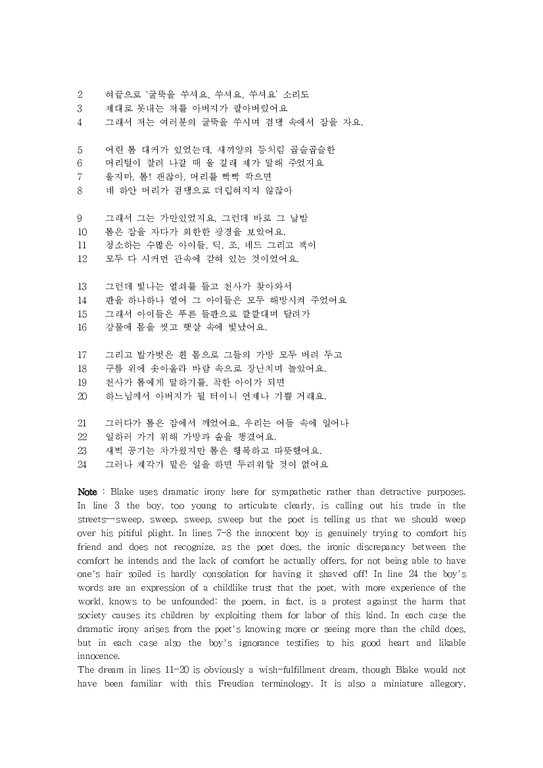 3
3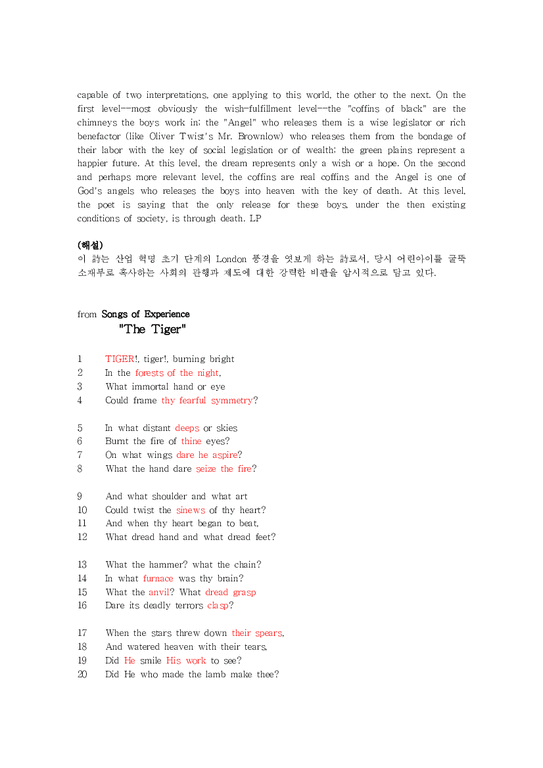 4
4 5
5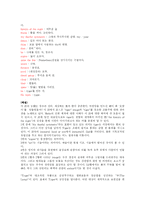 6
6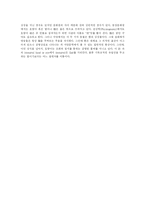 7
7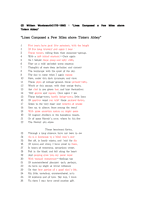 8
8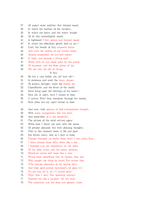 9
9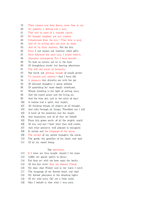 10
10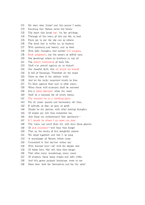 11
11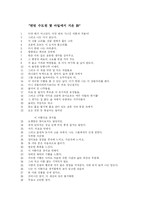 12
12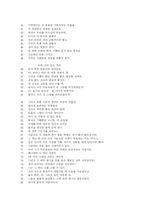 13
13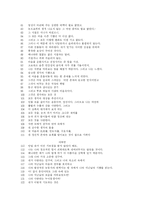 14
14 15
15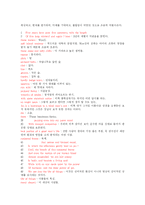 16
16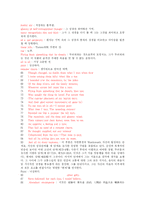 17
17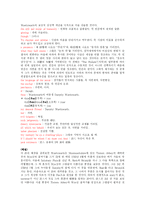 18
18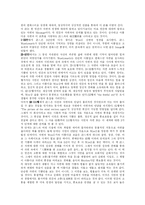 19
19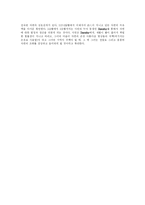 20
20
추천 연관자료
- 목차
-
-19世紀 英國詩-
(1) William Blake(1757-1827) : "The Chimney Sweeper"
from Songs of Innocence
"The Chimney Sweeper"
1 When my mother died I was very young,
2 And my father sold me while yet my tongue,
3 Could scarcely cry weep, weep, weep.
4 So your chimneys I sweep & in soot I sleep.
5 There little Tom Dacre, who cried when his head
6 That curled like a lambs back, was shaved, so I said,
7 Hush Tom never mind it, for when your head's bare,
8 You know that the soot cannot spoil your while hair.
9 And so he was quiet, & that very night,
10 as Tom was a sleeping he had such a sight,
11 That thousands of sweepers Dick, Joe Ned & Jack
12 Were all of them locked up in coffins of black
13 And by came an angel who had bright key,
14 And he opened the coffins & set them all free.
15 Then down a green plain leaping laughing they run
16 And wash in a river and shine in the Sun.
17 Then naked & white, all their bags left behind,
18 They rise upon clouds, and sport in the wind.
19 And the Angel told if he'd be a good boy,
20 He'd have God for his father & never want joy.
21 And so Tom awoke and we rose in the dark
22 And got with our bag & our brushes to work.
23 Though the morning was cold, Tom was happy & warm,
24 So if all do their duty, they need not fear harm.
"굴뚝 청소하는 아이"
1 어머니가 돌아가셨을 때 저는 아주 어렸는데
2 혀끝으로 ‘굴뚝을 쑤셔요, 쑤셔요, 쑤셔요’ 소리도
3 제대로 못내는 저를 아버지가 팔아버렸어요
4 그래서 저는 여러분의 굴뚝을 쑤시며 검댕 속에서 잠을 자요.
5 어린 톰 대커가 있었는데, 새끼양의 등처럼 곱슬곱슬한
6 머리털이 잘려 나갈 때 울 길래 제가 말해 주었지요
7 울지마, 톰! 괜찮아, 머리를 빡빡 깍으면
8 네 하얀 머리가 검댕으로 더럽혀지지 않잖아
9 그래서 그는 가만있었지요, 그런데 바로 그 날밤
10 톰은 잠을 자다가 희한한 광경을 보았어요.
11 청소하는 수많은 아이들, 딕, 조, 네드 그리고 잭이
12 모두 다 시커먼 관속에 갇혀 있는 것이었어요.
13 그런데 빛나는 열쇠를 들고 천사가 찾아와서
14 판을 하나하나 열어 그 아이들은 모두 해방시켜 주었어요
15 그래서 아이들은 푸른 들판으로 깔깔대며 달려가
16 강물에 몸을 씻고 햇살 속에 빛났어요.
17 그리고 발가벗은 흰 몸으로 그들의 가방 모두 버려 두고
18 구름 위에 솟아올라 바람 속으로 장난치며 놀았어요.
19 천사가 톰에게 말하기를, 착한 아이가 되면
20 하느님께서 아버지가 될 터이니 언제나 기쁠 거래요.
21 그러다가 톰은 잠에서 깨었어요. 우리는 어둠 속에 일어나
22 일하러 가기 위해 가방과 솔을 챙겼어요.
23 새벽 공기는 차가웠지만 톰은 행복하고 따뜻했어요.
24 그러나 제각기 맡은 일을 하면 두려워할 것이 없어요
Note : Blake uses dramatic irony here for sympathetic rather than detractive purposes. In line 3 the boy, too young to articulate clearly, is calling out his trade in the streets--sweep, sweep, sweep, sweep but the poet is telling us that we should weep over his pitiful plight. In lines 7-8 the innocent boy is genuinely trying to comfort his friend and does not recognize, as the poet does, the ironic discrepancy between the comfort he intends and the lack of comfort he actually offers, for not being able to have one's hair soiled is hardly consolation for having it shaved off! In line 24 the boy's words are an expression of a childlike trust that the poet, with more experience of the world, knows to be unfounded: the poem, in fact, is a protest against the harm that society causes its children by exploiting them for labor of this kind. In each case the dramatic irony arises from the poet's knowing more or seeing more than the child does, but in each case also the boy's ignorance testifies to his good heart and likable innocence.
The dream in lines 11-20 is obviously a wish-fulfillment dream, though Blake would not have been familiar with this Freudian terminology. It is also a miniature allegory, capable of two interpretations, one applying to this world, the other to the next. On the first level--most obviously the wish-fulfillment level--the "coffins of black" are the chimneys the boys work in; the "Angel" who releases them is a wise legislator or rich benefactor (like Oliver Twist's Mr. Brownlow) who releases them from the bondage of their labor with the key of social legislation or of wealth; the green plains represent a happier future. At this level, the dream represents only a wish or a hope. On the second and perhaps more relevant level, the coffins are real coffins and the Angel is one of God's angels who releases the boys into heaven with the key of death. At this level, the poet is saying that the only release for these boys, under the then existing conditions of society, is through death. LP
(해설)
이 詩는 산업 혁명 초기 단계의 London 풍경을 엿보게 하는 詩로서, 당시 어린아이를 굴뚝 소재부로 혹사하는 사회의 관행과 제도에 대한 강력한 비판을 암시적으로 담고 있다.
from Songs of Experience
"The Tiger"
1 TIGER!, tiger!, burning bright
2 In the forests of the night,
3 What immortal hand or eye
4 Could frame thy fearful symmetry?
5 In what distant deeps or skies
6 Burnt the fire of thine eyes?
7 On what wings dare he aspire?
8 What the hand dare seize the fire?
9 And what shoulder and what art
10 Could twist the sinews of thy heart?
11 And when thy heart began to beat,
12 What dread hand and what dread feet?
- 본문내용
-
-19世紀 英․美詩-
-19世紀 英國詩-
(1) William Blake(1757-1827)
"The Chimney Sweeper", "The Tiger"
(2) William Wordsworth(1770-1850)
"Lines Composed a Few Miles above Tintern Abbey"
(3) Samuel Taylor Coleridge(1772-1834)
"The Rime of the Ancient Mariner", "Kubla Khan"
(4) George Gordon Byron(1788-1824)
"Childe Harold's Pilgrimage(canto1)", "She Walks in Beauty"
(5) Percy Bysshe Shelley(1792-1822)
"Ode to the West Wind"
(6) John Keats(1795-1821)
"Ode on a Grecian Urn"
(7) Alfred Tennyson(1989-1892)
"Ulysses"
(8) Robert Browning(1812-1889)
"Porphyria's Lover", "My Last Duchess"
(9) Matthew Arnold(1822-1888)
"Dover Beach"
-19世紀 美國詩-
(1) Ralph Waldo Emerson(1830-1882)
"Each and All"
(2) Edgar Allan Poe(1809-1849)
"The Raven", "Annabel Lee"
(3) Walt Whitman(1819-1992)
I-VI of "Song of Myself", "When Lilacs Last in the Dooryard Bloom'd"
(4) Emily Dickinson(1830-1886)
"After great pain, a formal feeling comes--", "I heard a Fly buzz--When I died--"
-19世紀 英國詩-
(1) William Blake(1757-1827) : "The Chimney Sweeper"
from Songs of Innocence
"The Chimney Sweeper"
1 When my mother died I was very young,
2 And my father sold me while yet my tongue,
3 Could scarcely cry weep, weep, weep.
4 So your chimneys I sweep & in soot I sleep.
5 There little Tom Dacre, who cried when his head
6 That curled like a lambs back, was shaved, so I said,
7 Hush Tom never mind it, for when your head's bare,
8 You know that the soot cannot spoil your while hair.
9 And so he was quiet, & that very night,
10 as Tom was a sleeping he had such a sight,
11 That thousands of sweepers Dick, Joe Ned & Jack
12 Were all of them locked up in coffins of black
13 And by came an angel who had bright key,
14 And he opened the coffins & set them all free.
15 Then down a green plain leaping laughing they run
16 And wash in a river and shine in the Sun.
17 Then naked & white, all their bags left behind,
18 They rise upon clouds, and sport in the wind.
19 And the Angel told if he'd be a good boy,
20 He'd have God for his father & never want joy.
21 And so Tom awoke and we rose in the dark
22 And got with our bag & our brushes to work.
23 Though the morning was cold, Tom was happy & warm,
24 So if all do their duty, they need not fear harm.
"굴뚝 청소하는 아이"
1 어머니가 돌아가셨을 때 저는 아주 어렸는데
2 혀끝으로 ‘굴뚝을 쑤셔요, 쑤셔요, 쑤셔요’ 소리도
3 제대로 못내는 저를 아버지가 팔아버렸어요
4 그래서 저는 여러분의 굴뚝을 쑤시며 검댕 속에서 잠을 자요.
5 어린 톰 대커가 있었는데, 새끼양의 등처럼 곱슬곱슬한
6 머리털이 잘려 나갈 때 울 길래 제가 말해 주었지요
7 울지마, 톰! 괜찮아, 머리를 빡빡 깍으면
8 네 하얀 머리가 검댕으로 더럽혀지지 않잖아
9 그래서 그는 가만있었지요, 그런데 바로 그 날밤
10 톰은 잠을 자다가 희한한 광경을 보았어요.
11 청소하는 수많은 아이들, 딕, 조, 네드 그리고 잭이
12 모두 다 시커먼 관속에 갇혀 있는 것이었어요.
13 그런데 빛나는 열쇠를 들고 천사가 찾아와서
14 판을 하나하나 열어 그 아이들은 모두 해방시켜 주었어요
15 그래서 아이들은 푸른 들판으로 깔깔대며 달려가
16 강물에 몸을 씻고 햇살 속에 빛났어요.
17 그리고 발가벗은 흰 몸으로 그들의 가방 모두 버려 두고
18 구름 위에 솟아올라 바람 속으로 장난치며 놀았어요.
19 천사가 톰에게 말하기를, 착한 아이가 되면
20 하느님께서 아버지가 될 터이니 언제나 기쁠 거래요.
21 그러다가 톰은 잠에서 깨었어요. 우리는 어둠 속에 일어나
22 일하러 가기 위해 가방과 솔을 챙겼어요.
23 새벽 공기는 차가웠지만 톰은 행복하고 따뜻했어요.
24 그러나 제각기 맡은 일을 하면 두려워할 것이 없어요
Note : Blake uses dramatic irony here for sympathetic rather than detractive purposes. In line 3 the boy, too young to articulate clearly, is calling out his trade in the streets--sweep, sweep, sweep, sweep but the poet is telling us that we should weep over his pitiful plight. In lines 7-8 the innocent boy is genuinely trying to comfort his friend and does not recognize, as the poet does, the ironic discrepancy between the comfort he intends and the lack of comfort he actually offers, for not being able to have one's hair soiled is hardly consolation for having it shaved off! In line 24 the boy's words are an expression of a childlike trust that the poet, with more experience of the world, knows to be unfounded: the poem, in fact, is a protest against the harm that society causes its children by exploiting them for labor of this kind. In each case the dramatic irony arises from the poet's knowing more or seeing more than the child does, but in each case also the boy's ignorance testifies to his good heart and likable innocence.
The dream in lines 11-20 is obviously a wish-fulfillment dream, though Blake would not have been familiar with this Freudian terminology. It is also a miniature allegory, capable of two interpretations, one applying to this world, the other to the next. On the first level--most obviously the wish-fulfillment level--the "coffins of black" are the chimneys the boys work in; the "Angel" who releases them is a wise legislator or rich benefactor (like Oliver Twist's Mr. Brownlow) who releases them from the bondage of their labor with the key of social legislation or of wealth; the green plains represent a happier future. At this level, the dream represents only a wish or a hope. On the
자료평가
-
아직 평가한 내용이 없습니다.
오늘 본 자료
더보기

최근 판매 자료
- 문법번역식 교수법과 직접식 교수법을 비교설명하시오.
- 만2세 1년 개별면담일지 10Page 분량입니다. (부모상담일지/부모면담일지/개별상담일지)
- 수질오염 - 정의와 원인
- 의미장 - 의미장에 대한 기초 지식 & 장이론의 이론적 배경과 전개
- 초등 사회수업지도안 - 논쟁문제수업모형
- [국어정서법, 맞춤법] 한글 맞춤법 오용 사례
- 스웨덴과 일본의 아동복지제도와 우리나라 아동복지제도의 공통점과 차이점이 무엇인가 설명하고 앞으로 우리나라가 나아갈 방향에 대해서 서술하시오
- 만5세 1학기 부모면담일지/부모상담일지 20명 분량
- 한국사_고려시대 문벌귀족과 권문세족에 대해서 설명하고 본인이 고려의 인종이었따면 이자겸의 난과 묘청서경천도운동(난)을 어떻게 대처했을지에 대해서 논하시오
- 고전적 조건화와 조작적 조건화의 차이를 보육현장의 사례를 들어 설명하시오
저작권 관련 사항 정보 및 게시물 내용의 진실성에 대하여 레포트샵은 보증하지 아니하며, 해당 정보 및 게시물의 저작권과 기타 법적 책임은 자료 등록자에게 있습니다. 위 정보 및 게시물 내용의 불법적 이용, 무단 전재·배포는 금지됩니다. 저작권침해, 명예훼손 등 분쟁요소 발견시 고객센터에 신고해 주시기 바랍니다.





